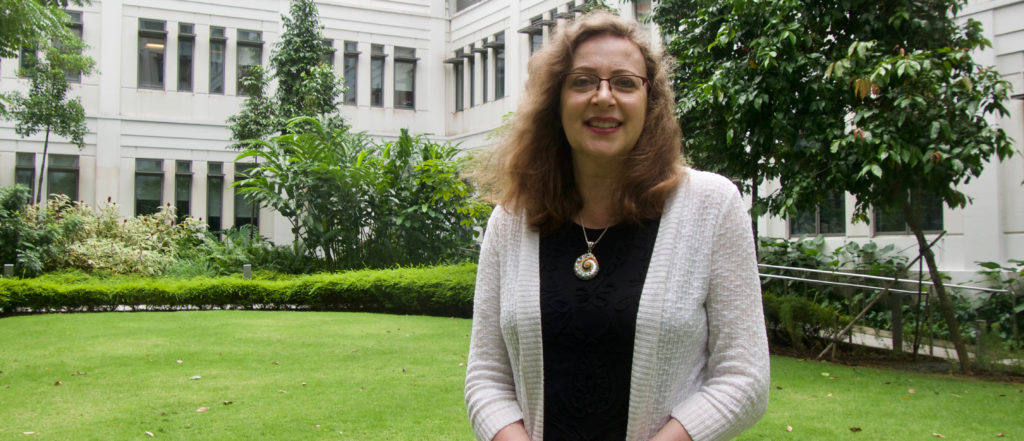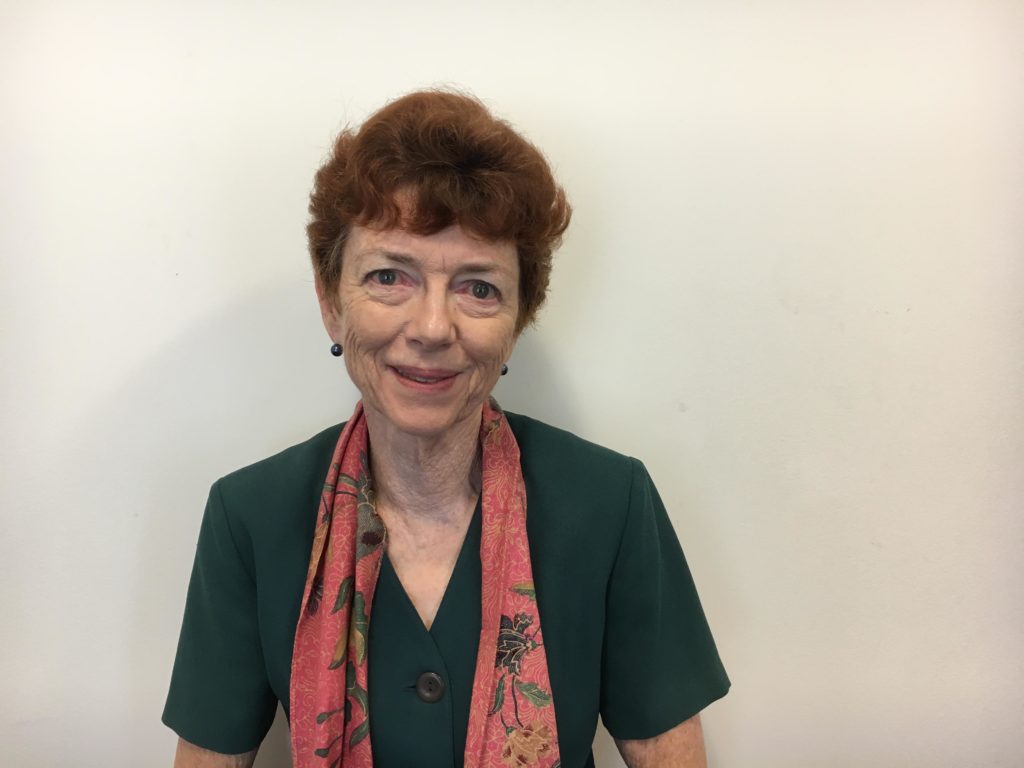Visiting faculty enrich module offerings

As Head of Studies for Anthropology, Professor Inhorn mentors junior faculty and leads the capstone course for seniors. Photo by Yasu Watanabe.
As a young institution, Yale-NUS often hosts visiting faculty who enrich the academic life on campus. They offer diverse modules, mentor younger faculty and speak at talks and workshops. This academic year, the College welcomed six visiting faculty members on semester or year-long stints from Yale University, Vassar College and the University of Hawai’i.
For Professor of Social Sciences Marcia Inhorn, her year-long stint continues her support for the Anthropology major at Yale-NUS. “I got involved in helping to build the Anthropology programme here three years ago while helping to hire new faculty,” she said. When asked to lead the major as Head of Studies (HOS) for a year, Professor Inhorn, who is the William K. Lanman, Jr. Professor of Anthropology and International Affairs at Yale, agreed.
“This is one of the first dedicated Anthropology programmes in Asia and I’m committed to helping Anthropology thrive at Yale-NUS,” she said. As HOS, Professor Inhorn mentors junior faculty and leads the capstone course for seniors.
Professor Inhorn said she has enjoyed being in a smaller college setting, “a tenth the size of Yale”. She added, “I wasn’t sure what the student body would be like, but it’s an interesting international cohort of students.” Professor of Social Sciences Philip Gorski, also from Yale, said he enjoyed teaching Yale-NUS students so much when he visited in Spring 2015 that he asked to return. “I found the students to be very intellectual, critical, very outspoken, very fun to teach… We just had such a good time, I was worried that I wouldn’t ever get a chance to come back,” said Professor Gorski, who is teaching the fully subscribed Contemporary Social Theory module again.
This semester, Professor Gorski is also teaching the Populism and Democracy module. “It’s interesting to talk to students who can tell me more about politics in Indonesia, Malaysia, India and the Philippines,” he said. Exposure to the region—Southeast Asia and Asia—is another draw for faculty visiting from universities in other parts of the world. As a Middle East scholar, Professor Inhorn said she has enjoyed being in a place with an Islamic presence, and has also visited neighbouring countries Malaysia and Indonesia, which both have large Muslim populations.
Scholars of the region also visit Yale-NUS. Professor of Humanities Barbara Andaya, who specialises in Southeast Asian history, is visiting with a joint appointment at the ISEAS–Yusof Ishak Institute. Professor Andaya is no stranger to Singapore, having taught at the National University of Singapore before. At Yale-NUS, she taught classes on gender and globalisation in Southeast Asia.

Professor Andaya, an expert in Southeast Asian history, is no stranger to Singapore. Image by Regina Marie Lee.
“Juggling two jobs is a bit of a challenge,” admitted Professor Andaya, who is from the University of Hawai’i. She is also a sought-after speaker and editor, and has given talks at the Lee Kuan Yew School of Public Policy and the National Library. In addition to teaching and advising work, visiting faculty often give talks and hold workshops to share their knowledge with a wider audience.
Visiting Professor of Social Sciences Daniel Esty, an expert on environmental law and energy policy, recently hosted a roundtable on improving corporate sustainability reporting with companies in Singapore. The Hillhouse Professor of Environmental Law and Policy at Yale is offering a six-week intensive course on climate change and the future of energy. It culminates in a case competition, where students will propose various strategies for Singapore to move towards a 21st century energy framework, exploring decarbonisation and nuclear power, for example.
Professor Esty said that meeting local actors working on climate change and energy has left him more hopeful. “I see in Singapore tremendous optimism about this country… It’s a good reminder that there are still important places in the world that are in an economic upswing, where people are feeling good about their lives and positive about the future,” he said. “That gives me hope that we can take on some of the problems that must be addressed at global scale, perhaps with new energy and leadership, from places like Singapore,” he added.





